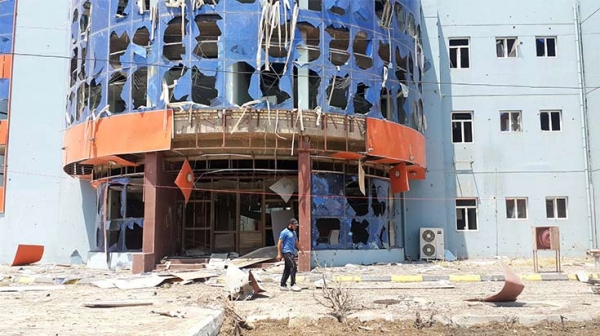The new International Committee of the Red Cross (ICRC)’s report “Tackling violence against health care in Iraq, Lebanon and the Philippines” focuses on attacks against health care facilities, health professionals and patients. In 2011, the ICRC launched the “Health Care in Danger” initiative promoting the protection of health care during armed conflicts and other emergencies.
Based on three countries, the report shows the field-based experience of the ICRC in protecting health care from violence. These three cases studies show the importance to implement preventive and protective measures which require the engagement with a wide range of actors
Despite the wide ratification of the Geneva Conventions and the adoption of United Nations Security Council Resolution 2286, violence against health care facilites and professionals continue. Medical facilities and vehicles are frequently attacked during armed conflicts as a result of military strategies or just reckless disregard. Moreover, States and non-State armed groups erect blockades and impose sanctions preventing the free movement in certain areas To “put an end to this serious humanitarian issue which prevents millions of people worldwide from getting the health care they need”, the ICRC developed the strategy.
In Iraq, the violence against health care has plagued medical facilities and health workers since the beginning of the war in 2003. The country also witnessed high levels of violence in recent time due to the legal impunity of perpetrators, a culture of tribal justice and the wide availability of weapons. To mitigate the attacks, in 2018 the IRCR launched a campaign i to increase public awareness regarding the importance of health care, the need to protect health workers and the humanitarian impact of violence against health staff. To better understand the level of violence, the ICRC together with the Health and Environment Volunteer team, had surveyed 621 health workers finding that 60% had been verbally abused, threatened or attacked in the three months prior to the survey and in 17% of cases, staff had been detained or physically attacked. The initiative, partnered with the Iraqi ministries of health, justice and defence, reached a total of 18 million persons due to the involvement of major TV channels, cinemas, radio stations as well as the distribution of campaign materials like posters, t-shirts and bracelets.
Ein el-Helweh, the largest refugee camp in Lebanon, hosts 70 000 refugees - besides , Palestinian refugees also refugees from Syria who live in very poor conditions with limited access to health care. This is further aggravated by the fact that in the camp the “carrying weapons is widespread and people tend to settle their differences through armed violence” as the security is shared among different Palestinians factions. Clashes between non-State armed groups (NSAGs) often caused damage to buildings and thus further exacerbated the work of health professionals, leading the ICRC to launch in 2014 a still ongoing project to promote a behaviour change among the NSAGs to end the violence. The campaign aims at safeguarding health professionals and protecting wounded and sick persons. The ICRC’s declaration, which the NSAGs approved in 2018, commiting the signatories to: respect and protect health-care personnel, facilities and vehicles; respect the d red cross and red crescent emblems; not to hinder medical care from reaching the wounded and sick; refrain from entering health-care facilities with weapons; and not to use medical vehicles for military purposes.
In the aftermath of the Marawi/Philippines’ crisis in 2017, the ICRC launched a wide range of activities to restore access to health-care facilities. The five-month conflict took over 1 000 lives and left 300 000 persons displaced. Furthermore, the violence against health care has damaged or destroyed almost 50% of the city’s medical facilities, depriving local communities from medical supplies and treatments for tuberculosis and other chronic diseases. Although health professionals were not specifically targeted, the fighting took a heavy toll on health workers. In early 2018, the ICRC’s survey of 174 doctors and nurses from the war-affected parts of the country showed that health professionals faced daily violence and that all armed actors carried out attacks on health workers. As a result, in 2019 the ICRC began to collaborate with the Integrated Provincial Health Office of Lanao del Sur and the military units to achieve an agreement for the problems health professionals on the ground are confronted with: unhindered passages through military checkpoints, the occupation of medical facilities, etc. To mitigate the risks that health professionals face while doing their jobs, the agreement provides for the protection of health workers, supporting the delivery of services and safeguarding routine health-care programmes.
To learn more, please visit:
Author: Silvia Luminati







